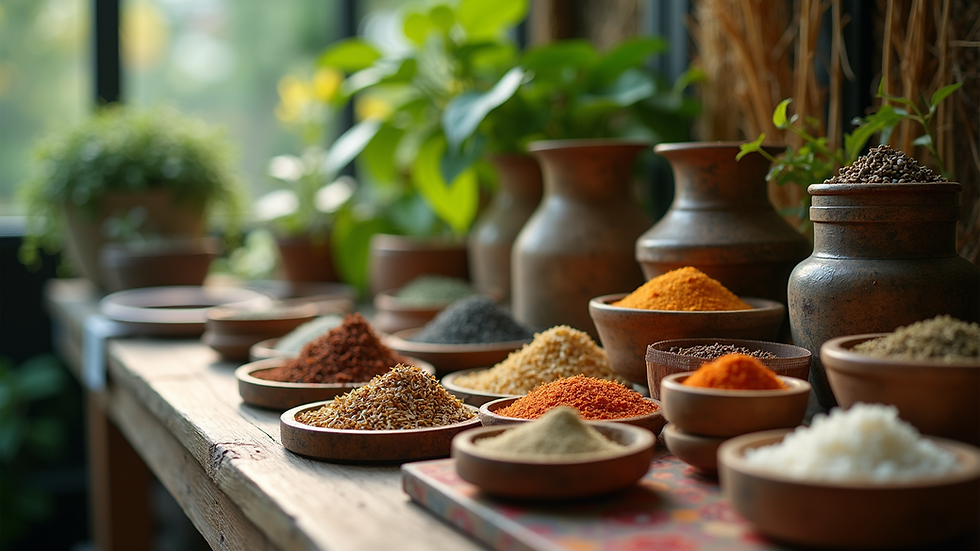Witch Doctors: Traditional Healing Practices and Their Cultural Significance
- Aug 2, 2025
- 3 min read
Traditional healing practices have long been interwoven with spirituality, folklore, and the natural world, creating a rich tapestry of cultural beliefs and customs. Among these practices, the figure of the witch doctor stands out as a compelling and essential part of many communities.
This post will explore the role of witch doctors, the origins of this term, their believed special abilities, and how their traditions have been preserved through generations.
What is a Witch Doctor?
A witch doctor is often seen as a healer or spiritual practitioner within various cultures, particularly in African and indigenous societies. These individuals are thought to communicate with spirits and harness supernatural powers to heal both physical and mental health issues. In contrast to mainstream medical practitioners, witch doctors typically use a blend of herbal remedies, rituals, and cultural folklore.
Despite the term witch doctor being a Western interpretation, it is vital to recognize that these practitioners often hold respected positions in their communities. For instance, in South African cultures, traditional healers are local leaders who provide essential services and guidance, demonstrating the profound respect accorded to them.
Why Are They Called Witch Doctors?

The label witch doctor stems from Western views on indigenous healing practices. In English, the word witch suggests magic, while doctor implies healing. However, this terminology can misrepresent the depth of these practices.
In many African contexts, witch doctors are called traditional healers, which more accurately reflects their role. For example, in Ghana, they may be referred to as ngangas, signifying their cultural position. This simplified term can overshadow the complexity and significance of their work, reducing it to a stereotype and ignoring the rich traditions behind their practices.
What Special Powers Do They Have?

Witch doctors are believed to possess a variety of special abilities, deeply grounded in cultural beliefs and spiritual practices. Some of these powers include:
Healing Energies: Many communities believe that witch doctors can connect with spiritual energies to promote physical and emotional healing. Some reports suggest that up to 70% of people in certain African nations rely on traditional healers for healthcare.
Herbal Wisdom: These practitioners hold extensive knowledge of local plants and their medicinal uses. For instance, they may use herbs like Aloe vera for skin conditions or Moringa for nutritional deficiencies, showcasing their reliance on nature for healing.
Communicating with Spirits: It is commonly believed that witch doctors can interact with spirits or ancestors to seek guidance. In some cultures, rituals directed at ancestors are essential for healing practices, as they strengthen community bonds.
Ritual Invocation: Performing rituals that call upon spiritual help is key in their practice. This helps foster a sense of emotional well-being and serves to unify communities during critical times.
These skills are honored and regarded as passed down through years of training and spiritual insight.
The Transmission of Traditions Over Centuries

Traditions related to witch doctors are often preserved through oral stories, apprenticeships, and community involvement. Young healers are generally trained directly by seasoned practitioners. In settings such as West African societies, this mentorship can last for several years, ensuring the continuity of knowledge about herbs, spiritual beliefs, and communal customs.
Cultural identity is deeply intertwined with these teachings, making this transmission not just an educational process but a way to connect generations. Community festivals and rites of passage frequently serve as outlets for sharing these practices, thus keeping the wisdom alive and relevant.
Acknowledging the significance of witch doctors is essential as we explore their role in traditional healing. The blend of spirituality, herbal knowledge, and cultural customs they embody creates a complex legacy.
Understanding these practices with care opens a window to appreciate their ongoing relevance in providing healing and guidance within their communities.


Comments